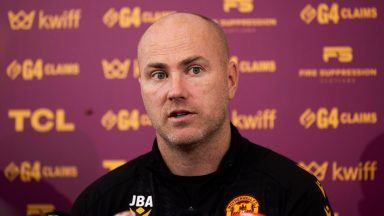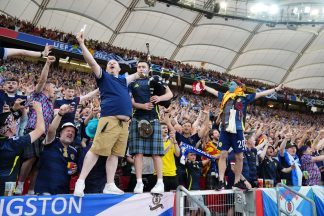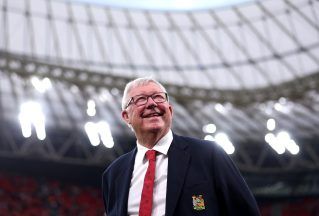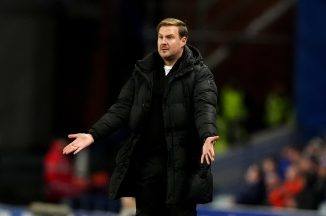Early in a season that’s turned into a breakthrough for Rangers and Steven Gerrard, the Ibrox boss took time out from his side’s title challenge to give an interview to Jake Humphreys’ High Performance podcast about his methods and motivations.
Reflecting on the impact of failure, Gerrard’s take on adversity would have come as no surprise to anyone who watched him through a decorated playing career at Liverpool, where he was the heart of a side that won domestic cups, European trophies and went agonisingly close to ending a long wait to take the league title back to Anfield.
“I’m up for a challenge,” Gerrard said. “I’m not scared of failure, even though I know that it stays with me for a long time.
“I’m someone who is driven and wants to challenge myself again.”
After his first season in Glasgow, and in management, a collapse in the second half of the season saw a title challenge evaporate. Gerrard challenged himself again, only to see the same result as Celtic maintained their iron grip on Scottish football’s prime silverware.
Third time has been the charm and Rangers have the reward that the manager has had his sights on since travelling north: a Premiership title and the undisputed position of being the best team in Scotland.
In his mind’s eye, the moment would ideally have arrived as his playing triumphs did, at the end of a dramatic 90 minutes and with the adulation of a crowd ringing in his ears. Instead, having beaten St Mirren 3-0 on Saturday with the crowd noise provided by supporters who broke Covid regulations to gather outside and celebrate their moment, confirmation of the title came a day later when Celtic failed to beat Dundee United.
The coronation as league champions seems a long way from the day of Gerrard’s appointment. At that point, Rangers were mired in a seemingly endless spell of disappointment, disorganisation and often despair. The ‘Banter Years’ had included a trip through the lower leagues and no end of off-field turmoil, while the most recent permanent manager had been Pedro Caixinha, whose most unforgettable moment in his tenure was arguing with fans while standing in a bush after a humiliating defeat in Luxembourg.
The appointment of Gerrard, a 37-year-old with no management experience, could have been the next wild twist in the ongoing soap opera, or it could have been the turn toward serious drama with a performer of international renown taking centre stage. It proved to be the latter.
The Liverpudlian revealed that an early talk with his players set out his attitude, where he would raise standards and then expect his players to meet them.
“We wanted to create a culture where it was a no excuse culture,” he told High Performance. “So yes, we’ll make the training ground better.
“We’ll make Ibrox better. We’ll get you better kit. We’ll get you better food. We’ll get you better.
“We’ll take the excuses away. But then you have to buy into having that responsibility and that accountability.”
It wasn’t just better breakfast that was on the menu. Better players were required to mount a serious challenge and Gerrard was not shy about moving into the transfer market.
The best of the remaining players were kept on, not least James Tavernier, who continued to lead by example on the park. But new faces were brought in with every window.
The record has been mixed but the best new recruits seriously lifted the levels, while the failures were moved on again. The likes of Eros Grezda, Gareth McAuley, Umar Sadiq and Andy King are almost forgotten already but the return of Allan McGregor and the signings of Ryan Kent, Glen Kamara and Connor Goldson, to name but a few, have been key to improvement.
A team that was prone to lapses was forged into a sterner unit, with McGregor, Tavernier, Goldson and Borna Barisic all stalwarts in a defensive unit that this year became incredibly mean. Only nine goals have been conceded in 32 games.
A winning blend has been found in midfield with Steven Davis and Scott Arfield showing the value of experience, while Ryan Jack and Kamara have shone. The likes of Kent, Joe Aribo and Ianis Hagi have all sparkled in creative roles, while Jermain Defoe has been joined by Kemar Roofe and Cedric Itten to provide alternatives to Alfredo Morelos and deliver goals.
There has been no shortage of exits as Gerrard has refined his squad but what has been left has proven more than a match for domestic rivals, while also carving a reputation in Europe.
That change has been gradual over three seasons but the major shift that’s seen Rangers switch from also-rans to champions has been in mentality.
In each of the last two seasons, Gerrard’s side had approached the new year in bullish form, only to drop point after point as Celtic raced into the distance again. It’s only a year ago this week that Tavernier, the club captain, admitted in his programme notes that “Whenever anybody puts a bit of pressure on us in Scotland or gets in our face it seems to affect us too much”.
Not this year. Rangers have been relentless, a League Cup defeat to St Mirren the only domestic blip as they racked up win after win after win. Opponents haven’t found a way to rattle them, and they soon had to deal with a different sort of pressure.
The challenge of chasing can always offer some excuses but when suddenly cast as favourites, expectation can test a team in other ways. Celtic’s unexpected slump in form saw the focus and the tag of champions-elect fall on Rangers.
Much has been made of former Ibrox chairman Dave King’s prediction that Celtic would “fold like a pack of cards” but things didn’t unfold the way the businessman thought they would.
In King’s vision, when Rangers clawed their way to the top and took a title, the ensuing Champions League money, and Celtic’s sudden lack of it, would cause a shift in power that would see the East End club topple. What happened was a collapse that came without warning and saw Neil Lennon’s side hand the initiative across the city.
Having previously been buoyed by derby wins only see the promise fade away, Gerrard refused to be drawn on Celtic’s travails and kept a narrow focus, each result a statement in itself that Rangers wouldn’t be distracted, while also being the model of consistency that was the opposite of their rivals’ erratic form.
That continued this weekend, with the celebrations that followed Rangers’ win at Ibrox the first sign of anyone getting ahead of themselves.
The partying continued on Sunday and will be repeated again when fans are allowed back at Ibrox and some semblance of normality returns.
But meantime, Gerrard will look to the immediate future and see that after this success, there’s plenty left to aim for. Thursday brings a meeting with Slavia Prague and the chance to take another huge stride in the Europa League. And the possibility of an ‘invincible’ season is very much alive but will be put to the test in the toughest of fixtures when Rangers go to Celtic later this month.
The achievement of winning the league title with so much to spare is plenty for Rangers to take pride in. But the nature of the win, and Rangers’ steady form, shows they could be celebrating more if Gerrard and his players keep their drive and challenge themselves again.


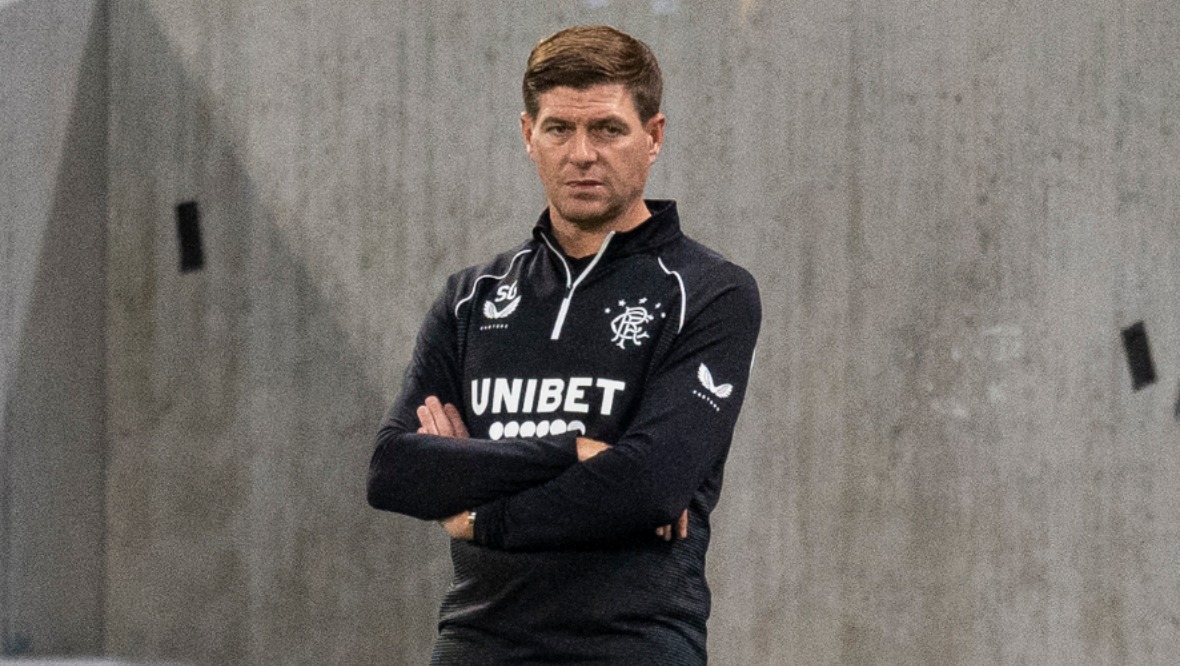 SNS Group
SNS Group















